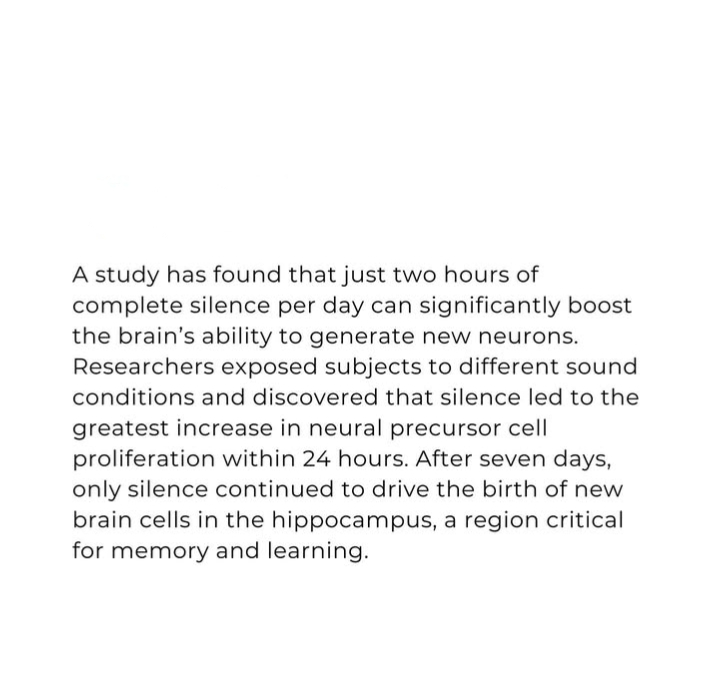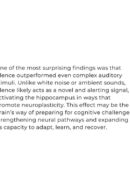Silence can Significantly Boost the Brain’s Ability to Generate NEW Neurons
Silence is more than just the absence of sound—it is a powerful stimulus for the brain. While modern life constantly bombards us with noise, conversations, notifications, and traffic, studies increasingly show that periods of quiet can have a profound impact on our mental and neurological health. One of the most striking benefits of silence is its ability to boost neurogenesis—the process by which the brain generates new neurons.
Neurogenesis is critical for learning, memory, and overall cognitive function. While it was once believed that humans could not grow new neurons after a certain age, research has overturned this assumption. In particular, the hippocampus, a region of the brain associated with memory and emotional regulation, is highly responsive to environmental influences, including silence. Animal studies have revealed that exposure to quiet environments can increase the production of new nerve cells in the hippocampus. The mechanism is thought to involve reduced stress levels and lower cortisol production. Silence gives the brain a chance to rest, recover, and focus on cellular repair and growth processes that are often interrupted by constant stimulation.
Noise, especially chronic noise pollution, has been shown to interfere with cognitive function, increase stress, and negatively affect cardiovascular health. In contrast, silence acts almost like a reset button. It encourages the brain to engage in deep thought, reflection, and internal processing. During these quiet moments, neurons can form new connections, strengthening synaptic pathways and facilitating better learning and memory consolidation. This is why many people report increased creativity and problem-solving abilities after spending time in a quiet environment.
The benefits of silence are not purely neurological; they are holistic. Regularly engaging in quiet time can reduce anxiety, improve attention, and enhance emotional well-being. Meditation practices, which often emphasize silence, have been scientifically validated for their ability to reduce stress and promote neuroplasticity—the brain’s ability to reorganize itself by forming new neural connections. Essentially, when we immerse ourselves in silence, we create an environment where the brain can focus on both its structural and functional growth.
In practical terms, incorporating silence into daily life does not require retreating to a monastery. Even short periods—10 to 20 minutes a day of being away from screens, music, or conversation—can have measurable benefits. Sitting quietly in a park, focusing on breathing, or simply observing one’s surroundings without commentary allows the brain to process information efficiently and promotes the growth of new neurons. Over time, these periods of silence can contribute to sharper cognitive function, improved memory retention, and greater emotional resilience.
In essence, silence is a surprisingly potent tool for brain health. While we often associate activity and noise with productivity, it is the quiet moments that allow the brain to grow, repair, and thrive. By embracing silence, we provide our minds the opportunity to generate new neurons, enhance cognitive capacity, and cultivate a deeper sense of mental clarity. In a world full of distractions, the power of silence is a reminder that sometimes the most profound growth occurs in stillness.














